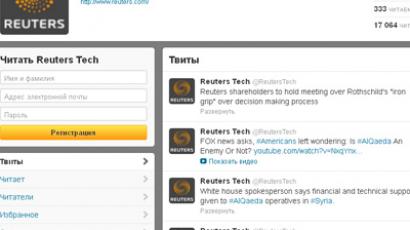Syrian pro-government hackers hijack The Guardian on Twitter

After causing havoc on the US stock markets, it seems that the group of hackers known as the “Syrian Electronic Army” (SEA) has struck again, this time hijacking the Twitter feeds of one of Britain's most respected newspapers.
Several accounts belonging to The Guardian, including @GuardianSustBiz and @BusinessDesk, began to send out messages of support for the pro-Assad group earlier on Monday. One tweet from the Business feed read “Follow the Syrian Electronic Army … Follow the truth! @Official_SEA12 #SEA #Syria”
According to the Guardian's own reporting, the SEA is thought to be operating out of a secret base in Dubai since leaving Damascus last year. Opposition activists believe Syrian President Bashar al-Assad's billionaire cousin, Rami Makhlouf, currently backs the group financially, and moved the SEA out of Syria following its emergence in 2011.
The Guardian joins a growing list of media companies that have fallen victim to recent takeovers by the Syrian Electronic Army, which now includes the BBC, NPR and CBS. Recently, the group also managed to gain access to world soccer governing body FIFA’s official feed.
Many of the victims, including The Guardian, reported phishing
email attempts before the successful hijacking of their Twitter
feeds. According to James Ball, a data editor with The Guardian,
the phishing attempts were “sustained” and included variations on
emails attempting to steal login credentials from newspaper
staff.
“The guys doing the Guardian phishing attack I mentioned yesterday (it's SEA) are really very good: sustained, changing, mails today,” Ball tweeted on Monday.

By some accounts, 11 Twitter feeds fell victim to the phishing
effort, which included several of the Guardian’s editors as well as
Guardian Stage, Guardian Film, Guardian Books and Guardian Music.
According to a tweet sent out by the SEA via the Books Twitter
feed, the group was responding to recent suspension of its own
accounts.
"We will keep hacking #Twitter accounts and cause for you problems if you keep suspending our accounts #SEA," the group tweeted via @guardianbooks.
Since last week’s AP Twitter hack announcing a bogus attack on the White House, which in addition to confusion briefly caused a $200 billion loss for the Dow Jones, many within the journalism community have been clamoring for additional security features from Twitter.
One of the most demanded features for enhanced security from the social networking site includes two-step authentication, which might take the form of a code sent via text message in addition to a feed’s password.
Successful exploits by the Syrian Electronic Army come at an inconvenient time for Twitter, which has grown to such a scale that the US Securities and Exchange Commission recently announced that companies can now share market relevant announcements via the platform.
As to what the specific motivations are for the spate of recent
takeovers, the SEA told RT Arabic last week that its activities are a response to US
media’s reporting of that country’s ongoing civil
conflict:
“US news agency Associated Press, alongside other Western news outlets have been engaged in a media war against Syria. But with our infiltration, we have shown that we can fight off any assault,” an anonymous source within the clandestine hacking organization Syrian Electronic Army (SEA) told RT.
Once accounts are compromised, most Twitter feeds are quickly
suspended by the service, though the SEA is nonetheless proving
quite successful at drawing attention to itself, and perhaps most
of all to a need for tighter security.















